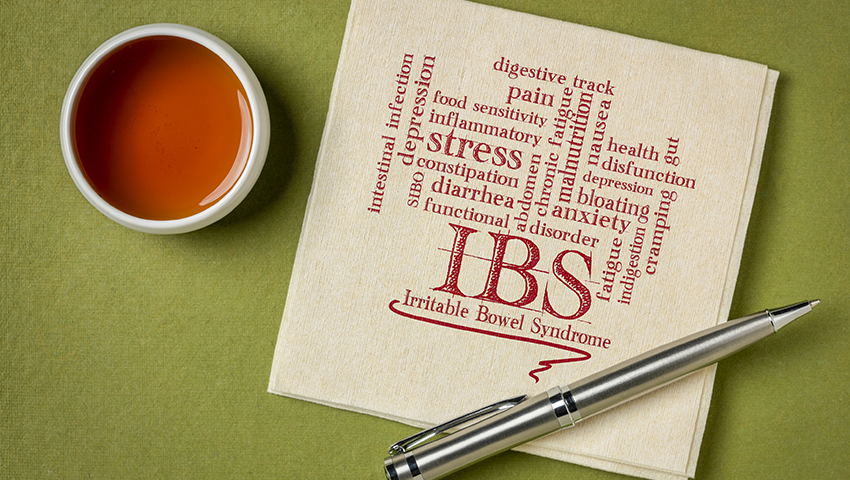Has your lifestyle been disrupted by symptoms of Irritable Bowel Syndrome (IBS)? My five-session IBS protocol can bring relief and, in some cases, total remission of symptoms.
While IBS does not pose a serious threat to your physical health (for instance, it does not increase your chance of cancer or other bowel-related diseases) the symptoms can make a serious impact on your lifestyle. This disruption depends on the severity of the IBS, which can vary from individual to individual. IBS can also become worse during periods of stress or anxiety, and after eating certain foods. The exact cause of IBS is unknown.
The impact of IBS on a person’s quality of life can be significant. Research indicates that people with IBS miss three times as many days from work as do those without IBS symptoms. One study (Farndale, 2011 #1895) noted that IBS sufferers adopt coping strategies that can include:
- Avoiding social activities that involved the use of communal bathrooms.
- Planning travel routes to ensure they have toilet access along the way.
- Waking up earlier to allow time for their bowel function to normalize before leaving the house.
- Planning their day around times when their symptoms were expected to be at their worst.
- Use of caffeine, nicotine, exercise, abdominal massage and/or digital manipulation to induce a bowel movement.
- The avoidance of certain clothes, public toilets, restaurants, vacations, and new situations where toilet facilities were unfamiliar, and even leaving the house at all, because of their symptoms.
- Carrying spare underwear, air freshener and/or pain relief medications when they go out.
The same study noted that IBS can detrimentally affect a sufferer’s mental and emotional condition as well, including:
- A sense of fear surrounding their IBS symptoms, and that this fear operated in a vicious circle, whereby they feared symptoms presenting at an inconvenient time, which led to stress, which in turn would exacerbate symptoms and worsen fear.
- Feeling stressed and anxious when changes to their schedule compromised their ability to implement coping strategies.
- Feeling worried that IBS was a misdiagnosis, and that a more serious condition (such as bowel cancer) had been missed.
- Feeling worried about their appearance on account of abdominal distension.
- Believing that partner relationships were negatively affected by their low moods, low self-esteem and low libido (in part because sex can be physically uncomfortable)
- Feeling that IBS symptoms worsened their anxiety and depression.
There were also worries regarding interaction with health services, including a concern that doctors could not help them with symptoms, or provided inadequate or contradictory advice on management of symptoms.
The good news is that there are several peer-reviewed scientific studies that suggest that a program of gut-centered hypnosis can lead to significant reductions in symptoms of IBS. Dan’s five-session IBS Relief Now protocol is a five-session hypnosis program that takes place over several weeks. Emphasis is placed on monitoring the client’s symptoms and using a variety of powerful but gentle techniques to create lasting relief. Special attention is paid to helping the client learn how to manage stress and anxiety, as these can aggravate IBS.
The mind-body connection will be explored to clear miscommunication between the brain and the gut to achieve as harmonious and normal gut function as possible. We will engage your subconscious mind to control your gut function, reducing sensitivity and relieving pain, bloating constipation, diarrhea, and urgency, leaving you calm, feeling in control and confident.
The goal is to restore as much of your pre-IBS freedom of lifestyle as possible. You have likely been told by doctors that you have to “live with it,” but Dan’s program is designed to get you as close to possible to living happily without it!
Click on the Calendly button at lower right to schedule a free, confidential 20-minute strategy session today!
References:
Farndale R. Long-term impact of irritable bowel syndrome: a qualitative study. Primary Health Care Research & Development. 2011; 12: 52-67
TAKE ACTION NOW! CLICK "CONTACT DAN" AT UPPER LEFT
OR CALL TOLL-FREE 800-481-5949 FOR A FREE CONSULTATION.













